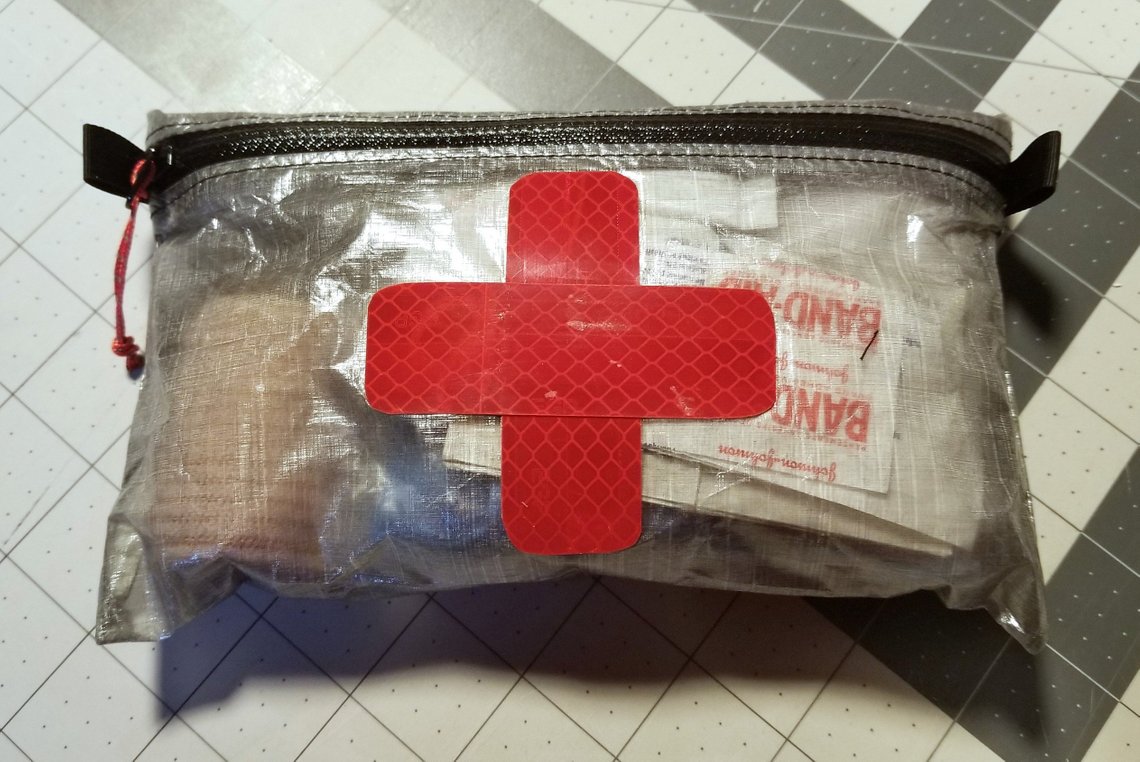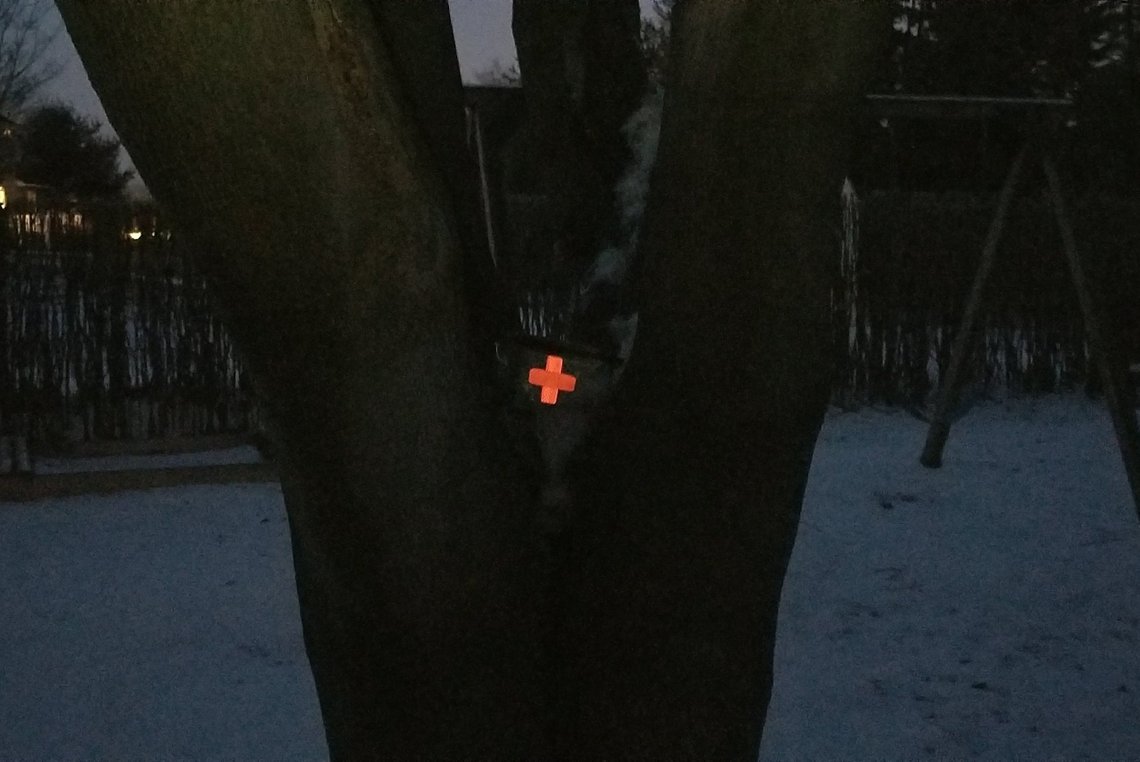Topic
Bear Bag Cable Height
Forum Posting
A Membership is required to post in the forums. Login or become a member to post in the member forums!
- This topic has 18 replies, 6 voices, and was last updated 5 years, 10 months ago by
 Brad P.
Brad P.
-
AuthorPosts
-
Feb 22, 2019 at 5:59 pm #3579945
What is the average height of the Bear Bag Cables out at Philmont? I know they say to hang your bags at a minimum 10′ off of the ground. So I’m thinking 12′-14′ high? I would like to set up a cable and sump in the back country of our local scout ranch so we can do more realistic training. That and it would be nice to have them there anyways.
Feb 22, 2019 at 8:02 pm #3579960Close to 20 feet high. When you consider Philmont’s bear ropes are 100 feet long, only 50 feet when doubled, after thrown over the bear cables there is not that much left lying on the ground.
And if you set yours too high it will be good practice for when they go to Philmont.
Feb 22, 2019 at 8:16 pm #3579962Yep. 20′ is what I remember. Have the scouts practice tossing that rope over, It can be quite a challenge.
The other issue is lifting 50 to 100 lbs of food up into the hang. 5 days worth of food for 12 people can weight 100+ lbs.
Feb 22, 2019 at 10:18 pm #3579981The rangers will not allow the use of throw bags or rocks tied to smaller diameter ropes to pull the heavy ropes over the cable. You will also need a climbing rated locking carabiner for the oops bag rope.
Feb 22, 2019 at 10:45 pm #3579985I think that’s what a lot of people that have not been yet don’t understand about Philmont’s food, there’s a lot of it and it’s heavy. One of the important things about getting your pack weight down and still having plenty of space in your pack is for all the food you’ll be carrying.
One of our crews had a father son pair that did all the studying on ultralight backpacking before going. They made their own packs and sleeping bags and did all the crazy stuff. But they didn’t have space in their UL packs for their share of the food. This kept their packs light but not their crew mates happy since they had to carry all the food.
Feb 23, 2019 at 2:02 am #3580005This is exactly why i stuck with the lightest 70 liter pack i could find. That food is crazy bulky and heavy at 48 ounces per day.
If i need to carry other peoples food, it will be $1 per ounce per day, payable at meal time :)
Bear Bag – training – I don’t get why they dont use bear canisters or require Ursacks
Hopefully some aspiring Eagle Scouts, pick this as a project- to install real bear containment, like they have on most of the Appalachian Trail , verses hanging bags.
https://www.youtube.com/watch?v=nLHz2iWKJrE
https://www.youtube.com/watch?v=DN2y50oUcS8
Feb 23, 2019 at 2:04 pm #358005620′! Wow I’m glad I asked, I never would have thought that they would be that high.
Feb 23, 2019 at 4:19 pm #3580071That first video is not a good example of the procedure. Must have been their first Ranger training camp.
Just after a commissary food pick-up it may require all the Scouts on both legs of the rope, regardless of crew size, to hoist the bear bags, they will be that heavy. As food is consumed fewer Scouts will be needed to hoist the bags. Then another commissary food pick-up and the cycle continues every 3 or 4 days.
“– I don’t get why they dont use bear canisters or require Ursacks.”
BearVault BV500 food canister @ $80, 11.5 liter, 2 lbs. 9 oz.
Ursack @ $85, 10.65 liter, 7.8 oz.
“if packed efficiently…can hold about 5 days of food for 1 person”
Each camper would have to carry at least one, $$$$. I would think cost is the reason for not using something else. And you would still want to store them outside of your camp or bears would be wandering through to tamper with whatever your food is stored in.
With Philmont’s bear cable system food is stored far away from camps so bears are not attracted to camps and has not been defeated in a long time.
I’ve seen several bear photo ops at the bear cables.
Feb 24, 2019 at 1:55 am #3580146Good point, I didn’t even think about the costs, and the canister is a lot heavier than I thought it would be.
Feb 25, 2019 at 2:50 am #3580425You are correct weight is such an issue, even with bear bagging. Not to say we sacrifice bear safety but we are smart able it.
We decline Philmont’s second heavy (1 lb., 3.2 oz. each) 100 foot of ¼” braided nylon rope for the oops bag in favor of our own lighter (4 oz.) 100 foot of 3mm light reflective braided nylon cord (500 lb. tensile strength x 2). The oops bag, with only the crew first aid kit and individuals’ smellables ditty bags, to be manageable by individuals does not need a bear rope ( 1,150 tensile strength x 2).
We also carry our own bear bags made of 1.9 rip-stop nylon (8.4 oz.) instead of Philmont’s bags (1 lb. 8 oz.). The greater advantage of our bear bags is they are distinguishable (bright primary colors: red, yellow, green, blue, etc.) on the same bear cable from every other crews’ tan Philmont bags.
During our training shakedown trips we try to replicate as much as possible the skills and gear they will use at Philmont so our crews are prepared to enjoy Philmont. So we bear bag, one pot cooking & clean-up, etc. We just don’t have bear cables, sumps and pilot-to-bombardiers in our local wilderness areas, LOL.
“Philmont should be enjoyed, not endured.” Moonshine
Feb 25, 2019 at 3:22 am #3580449We are among the earliest crews on the trail each day at Philmont. We rise at 5 and are on the trail by 6 so it is important to be able to retrieve our bear bags in the dark. Having our oops bag cord light reflective and bear bags different color avoids getting the wrong bags, even in the dark.
And if someone needs to get the oops bag down in the middle of the night ours is easy to find with a light reflective cord.
Feb 26, 2019 at 4:01 am #3580614@moonshine like the fieldcraft, especially the reflective rope for the FAK, I added 3M reflective Red Crosses to our Crew FAK, Individual FAK’s and Bear Bag that contains the kit, like this one

 Feb 26, 2019 at 4:22 am #3580620
Feb 26, 2019 at 4:22 am #3580620Here is the Crew FAK BAG with Reflective 3M Red Cross that I have been assembling:
(1) Dyneema Zip (HMG Small 4400) – Semi-transparent green
BASIC GEAR
(6) – Nitrile Gloves, pair
(1) – CPR Mask, Keychain
(1) – Wilderness First Aid Field Guide
(2) – SOAP Notes, Paper
(2) – SOAP Notes, Waterproof
(1) – Pen
EYE INJURY
(4) Eye Pads, Sterile
(8) Adhesive Tape Strips
(2) Tubes Ophthalmic Ointment
TOOLS & SUPPLIES
(1) – Trauma Shears
(1) – North American Rescue 30-0023 C-A-T Combat Application Tourniquet, Rescue Orange
(1) – Tweezers
(10) – Safety Pins, Assorted
(2) – Emergency Space Blankets
(1) – Irrigation Syringe w/ Irrigation Tip
(1) – Tick Twister w/ Tick ID Card
(4) – Disposable Thermometers
WOUND MANAGEMENT
(10) – Adhesive Bandage, Regular
(6) – Adhesive Bandage, Knuckle
(6) – Adhesive Bandage, Fingertip
(2) – Adhesive Bandage, Large
(1) – Occlusive Tegaderm Dressing
(10) – Gauze Pads, 4″x4″ (sterile)
(2) – Gauze Rolls (sterile)
(1) – Trauma Pad, 5″x9″ (sterile)
(2) – Cotton Tipped Applicators, 6″ (sterile)
BURNS & BLISTERS
(4) – Tincture of Benzoin
(2) – Blister Pads, 2nd Skin
(2) – Moleskin Sheets, 3″ x 4″
(6) – BurnJel Packets, 1g
(1) – Roll of Leukotape P 1.5in X 15 yards
(1) – Zanfel: Urushiol (Poison Oak, Ivy & Sumac treatment)
ORTHOPEDIC INJURIES
(1) – SAM Splint, 36″
(2) – Triangular Bandage, Cloth
(1) – Self-Adhesive Vet-Wrap
(1) – Elastic “Ace” Bandage
(1) – Silk Tape, 1″ (hypoallergenic)
(1) – Silk Tape, 2″ (hypoallergenic)
MEDICATIONS & WIPES
(12) – Ibuprofen
(6) – Acetaminophen
(8) – Antacid
(4) – Aspirin
(2) – Loperamide (anti-diarrheal)
(6) – Diphenhydramine (antihistamine)
(6) – Electrolyte
(6) – Hydrocortisone Cream
(6) – Triple-Antibiotic Ointment
(6) – Antiseptic Wipes
(10) – Alcohol Prep Pads
(10) – Povidone-Iodine Wipes
Feb 26, 2019 at 5:45 am #3580629I like your reflective tape red cross. Everything helps.
Our practice for our crew first aid kit is very comprehensive and is only for emergencies and serious injuries where two adults are attending the injured. It is not for individual’s daily needs. If individuals are allow to go through the emergency first aid kit on a daily basis it may get trashed or not have what you need for emergencies.
Every camper is to have his own personal first aid kit with his meds, aspirins, moleskin, tape, Body Guide, sunscreen, lip bulb, insect repellant, etc. for his daily use and ailments and is kept in his personal smellables ditty bag.
Feb 27, 2019 at 12:53 am #3580752On my first trek in 2007, we hiked to Anasazi for Ranger Training and our 1st year Ranger had us set up tents before showing us the Philmont bear bag procedures. A storm popped up and everyone crawled into the tents to stay dry. He fell asleep in his tent and the kids noticed mini bears getting into a food bag so they decided to hang the bear bags. They ended up tying a knot in the rope about 15 feet in the air. Our first team building exercise was to figure out how to untie the rope. 3 trekking poles duct taped together with a carabiner taped open on the top pole could reach the knot.
Our trip took us into the Valle so we were issued 3 ropes. There were no cables up there. I forget the method but I do remember connecting two of the ropes together at the midpoints with the carabiner and I think the ends were thrown over 4 limbs. We have Trek 5 this summer so we should not need the extra cable.
Both of my previous trips had MD’s on our crew so they were the first aid advisor. The last trip the doctor insisted on carrying a full trauma kit. He was born in Nepal to a family of Sherpas and regularly runs marathons so I didn’t try to convince him it was too much. His father and Father in law actually assisted the American Expedition to climb Everest in the 1960s.
Feb 27, 2019 at 3:14 am #3580778”Ranger had us set up tents before showing us the Philmont bear bag procedures. A storm popped up and… He fell asleep in his tent…”
That is amusing now.
Not all Rangers are the same or experts. Some are just reciting what they were told during Ranger training. We have had Rangers that had never been to Philmont or were even a Scout before accepting this summer job.
Mar 28, 2019 at 1:44 pm #3585917Any suggestions on the best rope to use to simulate the Philmont system? I’m sure we’ll use their stuff. We have a climbing carabiner. I’m not sure I can find the feed bags easily, but for training, we can use other bags.
Mar 29, 2019 at 3:23 am #3586034We make and take our own bear bags and we have all the other crew gear needed to train with before we go.
For bear our bags we use 1.9 oz. ripstop nylon from a local fabric stores in primary colors: blue, green. yellow or red. (It’s nice to be able to identify your bear bags from all the other tan ones hanging on the same cable.) It comes on 60” bolts, so get 160 inches (or 4 ¼ yards) of fabric, cut it in 40” lengths, fold each in half, sew up two sides and hem the 30” opening to make four 30” x 40” bags. We use separate color for each crew since we sometime hike the same trek (sister crews).
Philmont uses a common 1/4” braided nylon rope with 200+ pound working load found at your local home improvement box stores. The outside jacket is braided for protection and the core is linear strands for strength. Get 100 feet for each rope and fuse the ends
We go a step future and use 3mm braided nylon cord with reflective strands for our Oops cord (rope). Since the oops bag only has everyone’s personal smellable Ditty Bags and the crew FAK it does not require a 200 plus pound working load. And it can be easily found in the middle of the night, which might be a good thing.
Mar 29, 2019 at 7:28 pm #3586121Thanks, David!
-
AuthorPosts
- You must be logged in to reply to this topic.
Forum Posting
A Membership is required to post in the forums. Login or become a member to post in the member forums!
Our Community Posts are Moderated
Backpacking Light community posts are moderated and here to foster helpful and positive discussions about lightweight backpacking. Please be mindful of our values and boundaries and review our Community Guidelines prior to posting.
Get the Newsletter
Gear Research & Discovery Tools
- Browse our curated Gear Shop
- See the latest Gear Deals and Sales
- Our Recommendations
- Search for Gear on Sale with the Gear Finder
- Used Gear Swap
- Member Gear Reviews and BPL Gear Review Articles
- Browse by Gear Type or Brand.





